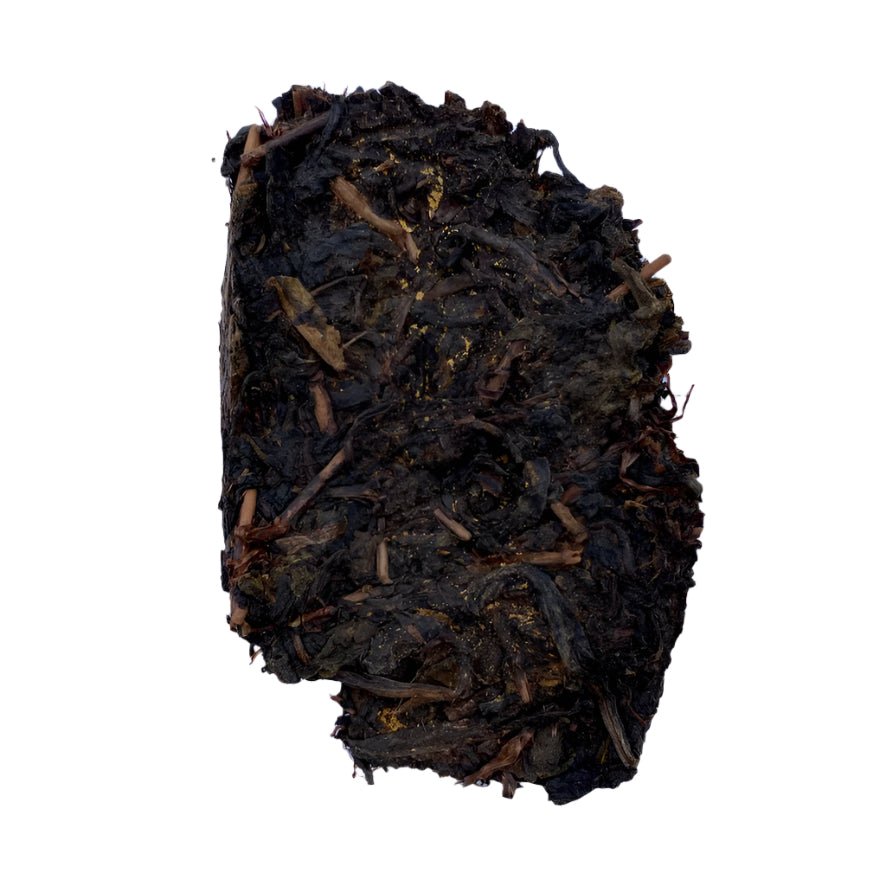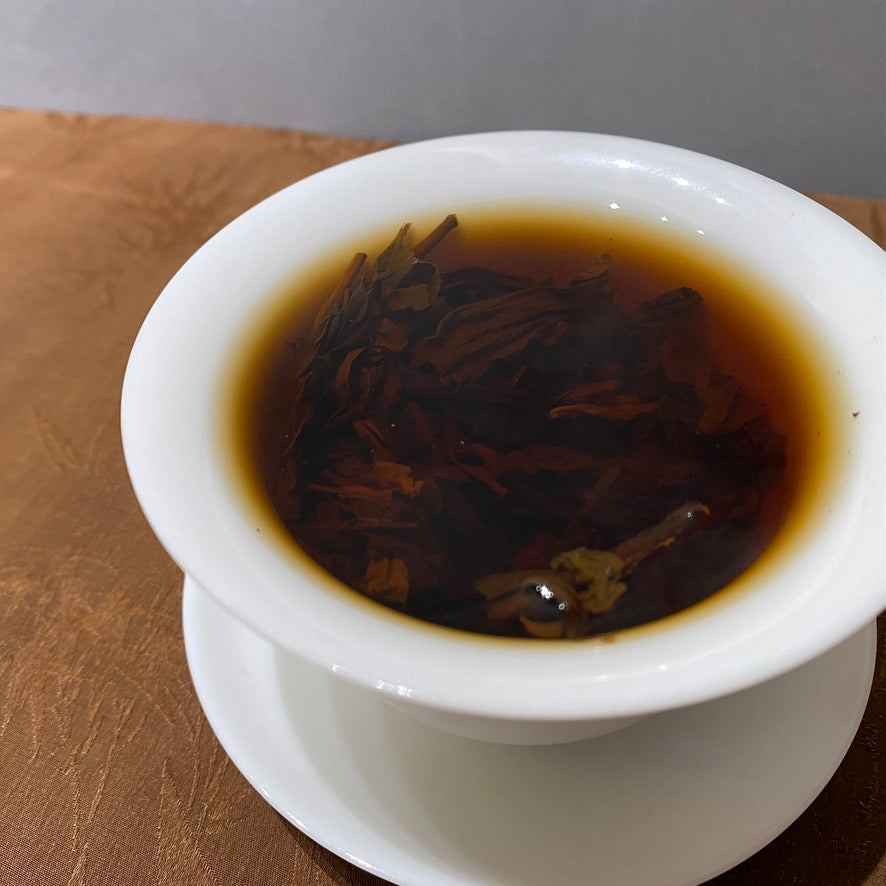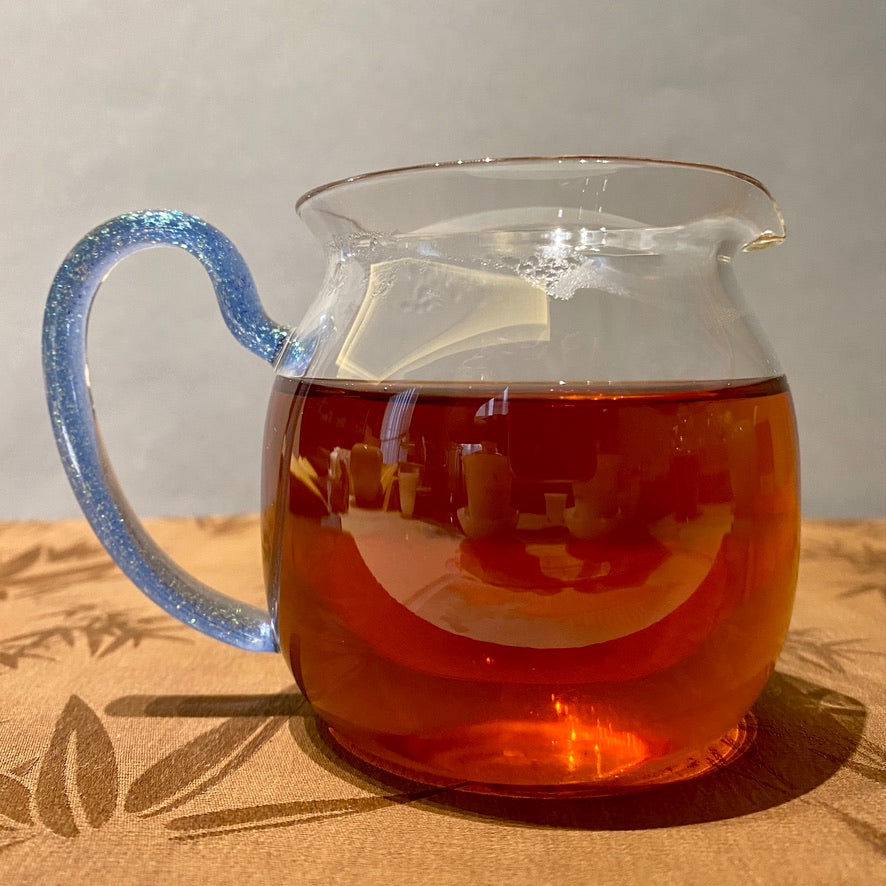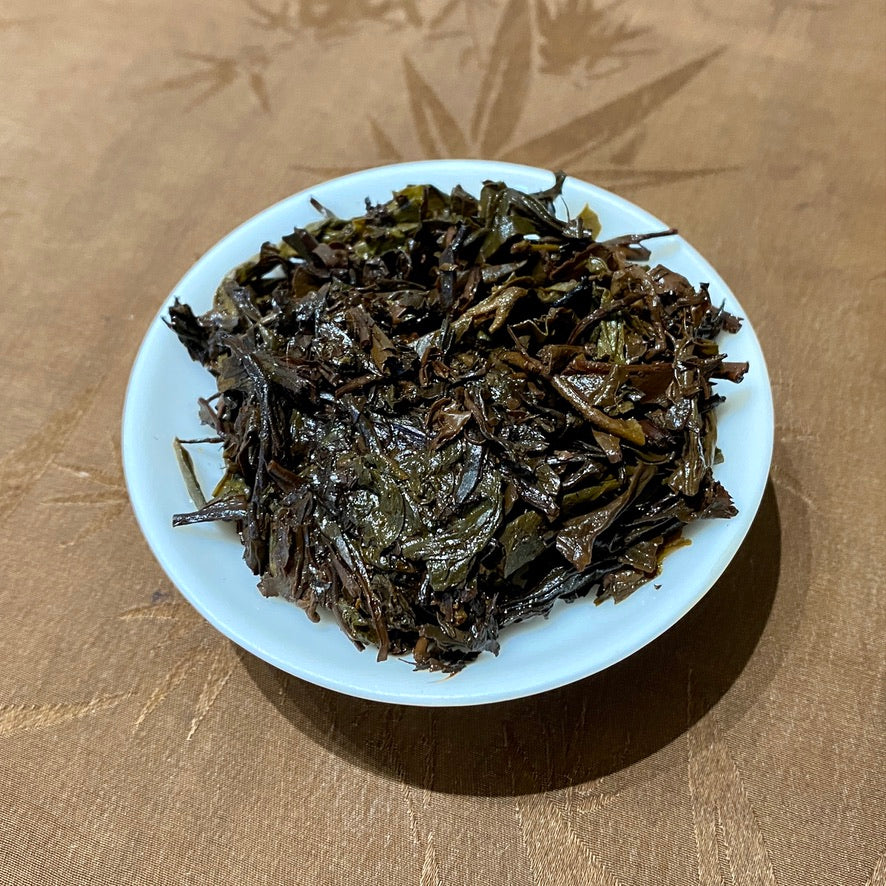Li Chenyin
2014 Golden Flower Red Fu Zhuan "Fu Brick" Black Tea
2014 Golden Flower Red Fu Zhuan "Fu Brick" Black Tea
2014红茯砖
Couldn't load pickup availability
Specifications
Specifications
Origin: Anhua County, Yiyang, Hunan Province, China
Elevation: 200-400 m
Cultivar: Qun Ti Zhong
Harvest time: Spring 2014
Source: Produced by Li Chenyin
Red Fu Brick Tea features the distinctive 'golden flowers' common to other Fu Brick teas. However, what sets it apart is that it's a red/black tea, in contrast to the traditional dark tea. This rarity makes it a true gem, as it's uncommon to find Fu Bricks made of black tea, even within the Chinese domestic market.
The tea leaves for this Red Fu Brick Tea were harvested in late spring of 2014 and underwent a meticulous production process. The tea leaves, in their Maocha (semi-processed tea) form, were crafted into black tea and stored in a traditional warehouse for over a year, allowing them to undergo the transformation and maturation that's typical of Fu Brick teas.
One of the distinctive features of this tea, shared with other Fu Brick teas, is its fermentation process, initiated after compression into brick-like shapes. During this phase, a natural fungal catalyst known as 'golden flowers' (Eurotium cristatum) is cultivated, lending a unique appearance and flavor to the tea. These 'golden flowers' also play a crucial role in facilitating oxidation and generating monosaccharides within the tea leaves, contributing to its distinct taste and potential health benefits.
For Red Fu Brick Tea, the black tea raw materials were compressed into tea bricks in August 2015 and stored in a controlled environment with regulated temperature and humidity. After approximately 30 days, the final product is ready and can be stored for long-term aging, just like the Fu Brick dark tea we featured in our September 2023 tea club.
Notice: This tea contains Golden Flowers (Eurotium cristatum), a beneficial probiotic fungus that naturally develops during fermentation. While generally safe, individuals with severe fungal allergies or gluten sensitivity (e.g. celiac disease) should consult a healthcare professional before consuming.
Share








